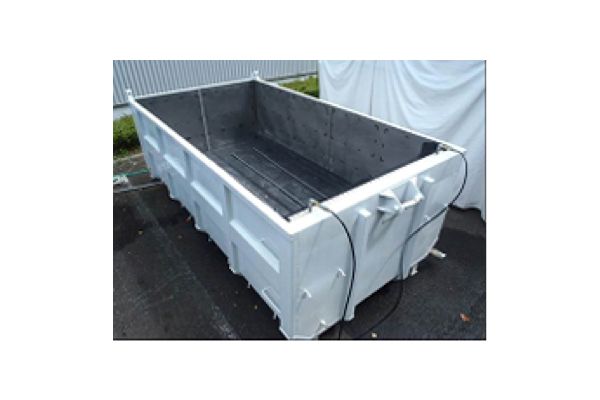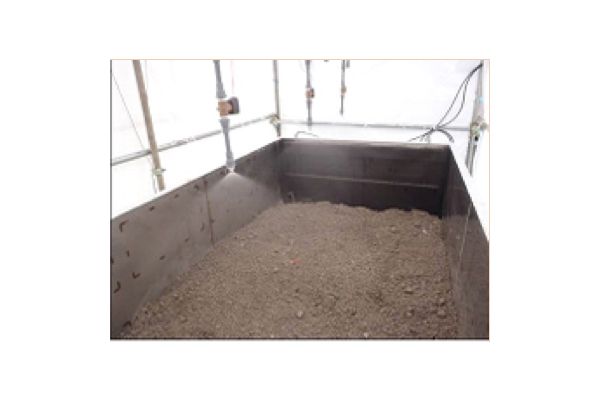Development of "FAST-BOX" on-site incinerated ash stabilization system - for low cost washing and carbonation treatment using iron box containers


Fujita Corporation, a Daiwa House Group company (Headquarter: Shibuya-ku Tokyo, President: Yoji Okumura) has developed a compact and effective on-site stabilization accelerating system for ash produced during incineration of general waste. This system is called "FAST-BOX" (Fujita's Ash Stabilization & Treatment for Disposal Facilities" by using BOX) and can be used for pre-treatment of ash prior to final disposal or recycling, desalination of incinerated ash, or reformulation of ash to meet acceptance standards.
The system consists of remodeled, commercially available, portable iron containers,
watering equipment above the container and a carbon dioxide aeration system positioned at the base of the container. The container is installed at the ash outlet in a final disposal facility, and ash is discharged directly into the storage container. In the system, salts and organic materials are removed by watering, whilst the aeration of carbon dioxide from the bottom of the container accelerates the insolubilizing of lead and calcium by carbonation.
For these full-scale verification tests 2.5 ton samples of incinerated ash were treated in each test. In the tests, a variety of watering nozzles, watering intensity and supply method of carbon dioxide were examined during 24-hour test cycles. As a result, the optimum air and water ratio (discharged water (ton) / weight of ash (ton) ) of 1.0 and the carbonation method were established.
Currently, heat and chemical treatment are used for the insolubilization of heavy metals, and mechanical desalination is used for the elimination of salts in the ash. These methods are effective, but specialized facilities are required and certain volume of ash needs to be secured to keep the treatment business profitable. Also, foreign materials such as metals are contained in the general wastes, and these materials often cause mechanical malfunctions within the treatment facilities. Accordingly, these foreign materials have to be eliminated before treatment.
In comparison, our system uses commercially available containers, increasing flexibility with respect to both the volume of the ash to be treated and the ability to vary watering and aeration conditions for different batches of waste ash as necessary. Accordingly, treatment can be profitable even for small volumes of waste. Also, the treatment is processed in boxes in a static state, so that there are few moving mechanical elements that could malfunction when foreign materials are present in the waste ash.
Through trialing this system at actual disposal facilities and collecting data, followed by improvements or modifications of the system, we plan to put this system to practical use in near future.
---
ENDS
---
Fujita Corporation
Public Relations Office
Tel. +81-3-3402-1911
Fax. +81-3-3404-8477
Email. info@fujita.co.jp
